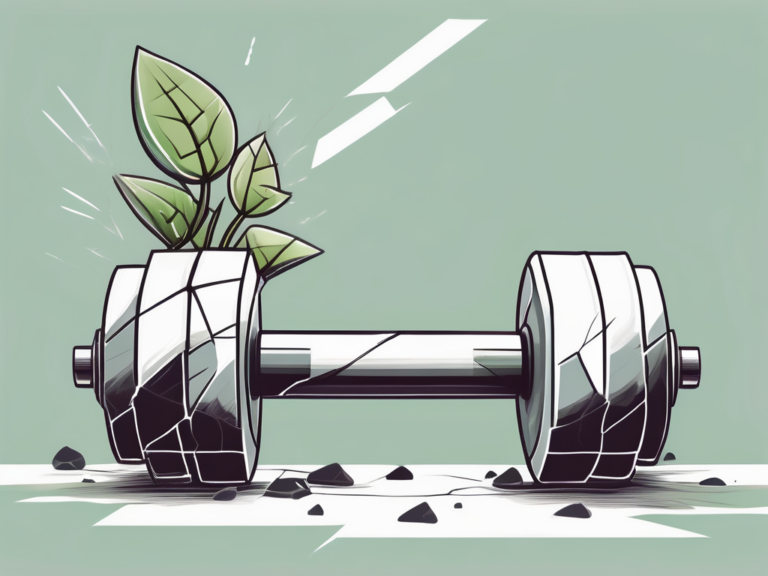My #1 Sanity Saver: Just Say “No”
Have you ever found yourself drowning in commitments and overwhelmed by an endless to-do list? If so, you’re not alone. In today’s fast-paced world, saying “no” has become a lost art. We often feel pressured to say “yes” to every request thrown our way, fearing that declining will result in missed opportunities or damaged relationships. However, what if I told you that saying “no” can actually be your number one sanity saver?
Understanding the Power of Saying “No”
At first glance, the idea of saying “no” may seem counterintuitive. After all, society often pushes us towards a “yes” mentality, where we feel obligated to please others at the expense of our own mental health. However, research has shown that overcommitment can have serious psychological impacts.
When we constantly say “yes” to every request, we spread ourselves thin, leaving little time or energy for self-care and personal growth. This leads to feelings of overwhelm, burnout, and even resentment towards those we’re trying to please. By understanding the negative effects of overcommitment, we can begin to embrace the freedom that comes with saying “no.”
The Psychological Impact of Overcommitment
Overcommitting ourselves can lead to a myriad of psychological issues. From increased stress levels to a decline in overall happiness, the toll it takes on our mental well-being should not be underestimated. When we stretch ourselves too thin, we rob ourselves of the opportunity to fully engage and enjoy the present moment. Our minds become cluttered with countless commitments, leaving little room for creativity, relaxation, and self-reflection.
Moreover, constantly saying “yes” to others’ requests can lead to a loss of personal identity and an erosion of self-esteem. We begin to define our worth solely based on our ability to say “yes” and fulfill others’ expectations, rather than focusing on our own needs and aspirations.
The Freedom in Rejection
Contrary to popular belief, saying “no” doesn’t have to be a negative or confrontational experience. In fact, it can be incredibly liberating. By setting boundaries and being selective about the commitments we take on, we gain the freedom to prioritize what truly matters to us.
Rejecting certain opportunities allows us the space to invest our time and energy in activities that align with our values and bring us joy. It’s about reclaiming control over our lives and reclaiming our right to choose how we spend our precious resources.
Imagine a life where you no longer feel overwhelmed by an endless to-do list. Picture yourself having the time and energy to pursue your passions and nurture your relationships. By saying “no” when necessary, you create the space for personal growth and self-discovery.
Furthermore, saying “no” can actually strengthen your relationships. When you set clear boundaries and communicate your limitations, you foster healthier and more authentic connections. People will respect your honesty and appreciate your ability to prioritize your well-being.
The Art of Saying “No”
Now that we understand the power of saying “no,” let’s explore the art of gracefully declining requests. Saying “no” doesn’t mean we have to be rude, dismissive, or unkind. In fact, there are countless techniques for politely declining while still maintaining positive relationships and fostering open communication.
Identifying Opportunities for Rejection
The first step in mastering the art of saying “no” is to identify the opportunities where it is appropriate to decline. Not every request that comes our way requires a “yes.” Being selective about the commitments we engage in allows us to prioritize our time and energy for what truly matters to us.
Take a moment to reflect on your current commitments and obligations. Are there any recurring tasks that don’t align with your values or bring you fulfillment? By identifying these opportunities for rejection, you can begin to create space for what truly matters.
For example, perhaps you have been volunteering for a cause that no longer resonates with you. While you appreciate the organization’s mission, you realize that your time and energy could be better utilized elsewhere. By recognizing this opportunity for rejection, you can gracefully step away from the commitment and explore new avenues that align with your passions.
Techniques for Politely Declining
Once we’ve identified the opportunities for rejection, it’s time to put our newfound skills into practice. Here are a few techniques for gracefully declining:
- Express gratitude: Begin by expressing gratitude for the opportunity or request. Acknowledge the other person’s perspective and efforts, emphasizing that it’s not a personal rejection.
- Offer alternatives: If appropriate, offer alternative solutions or suggest someone else who may be better suited to fulfill the request. This shows that you genuinely care while still declining the specific commitment.
- Be honest and firm: It’s crucial to be honest about your limitations and boundaries. Communicate your decision clearly and assertively without sugarcoating or over-explaining.
Remember, the art of saying “no” is about finding a balance between assertiveness and empathy. It’s about valuing your own well-being while still maintaining healthy relationships and connections.
By mastering the art of saying “no,” you can create a life that is aligned with your values and priorities. You can focus your time and energy on the things that truly matter to you, allowing for personal growth and fulfillment. So, embrace the power of “no” and let it guide you towards a more intentional and purposeful life.
The Benefits of Saying “No”
By now, you might be wondering what the benefits of saying “no” actually are. Let’s explore how this simple word can lead to improved mental health, enhanced productivity, and greater focus.
Improved Mental Health
When we prioritize our well-being and learn to say “no” when necessary, our mental health greatly benefits. We gain the freedom to engage in self-care activities, nurture meaningful relationships, and pursue personal interests. By setting boundaries and valuing our own needs, we create a positive environment that supports our mental and emotional well-being.
Imagine this: you’ve had a long and exhausting day at work, and all you want is some time to relax and recharge. However, a friend calls and asks if you can help them move to a new apartment. In the past, you might have automatically said “yes” out of a sense of obligation or fear of disappointing them. But now, armed with the power of saying “no,” you confidently decline, knowing that you need to prioritize your own well-being. By doing so, you create space for yourself to decompress, reducing stress and promoting a healthier state of mind.
Enhanced Productivity and Focus
The more we say “yes” to every request, the more our time and energy become fragmented and dispersed. By embracing the power of saying “no,” we regain control over our schedule and can focus our efforts on tasks that truly matter. By setting clear priorities and managing our commitments, we become more productive, efficient, and effective in both our personal and professional lives.
Consider this scenario: you have a packed to-do list with important deadlines looming. Your colleague approaches you with a last-minute request to help them with a project that is not your responsibility. In the past, you might have felt obligated to say “yes” and taken on the additional workload, sacrificing your own priorities. However, armed with the ability to say “no” when it’s necessary, you confidently decline, explaining your current commitments. By doing so, you protect your time and energy, allowing you to focus on your own tasks and deliver high-quality results. This newfound ability to prioritize and manage your workload leads to enhanced productivity and a greater sense of accomplishment.
Overcoming the Guilt of Saying “No”
One of the biggest hurdles in embracing the practice of saying “no” is often the guilt that accompanies it. We fear disappointing others or being perceived as selfish. However, it’s important to remember that prioritizing our own well-being is not selfish, but rather an act of self-love and self-care.
When we say “no,” we are not only setting boundaries, but we are also acknowledging our own limitations and needs. By recognizing and honoring these limitations, we are taking a proactive step towards maintaining a healthy balance in our lives. It is crucial to remember that we cannot pour from an empty cup, and by saying “no,” we are replenishing our own energy and preserving our mental and emotional well-being.
Dealing with Negative Reactions
When we start practicing saying “no,” we may encounter negative reactions from others who are accustomed to our constant compliance. It’s essential to remember that their reactions are not a reflection of our worth or the validity of our decision. Stay firm in your boundaries and remind yourself that your mental health and well-being are your top priorities.
It’s natural for people to resist change, especially when it disrupts the status quo. However, by standing firm in our decisions and communicating our boundaries clearly, we are not only asserting our own needs but also encouraging others to respect and honor their own boundaries. In the long run, this can lead to healthier and more authentic relationships built on mutual understanding and respect.
Building Confidence in Your Decisions
The more we practice saying “no” and experience the positive impact it has on our lives, the more confident we become in our decisions. Each time we prioritize our own needs, we reinforce our self-worth and strengthen our ability to set boundaries. Over time, saying “no” becomes easier, and we become more adept at managing our commitments.
As we build confidence in our ability to say “no,” we also develop a deeper sense of self-trust. We no longer second-guess our decisions or feel the need to constantly seek validation from others. Instead, we become attuned to our own needs and desires, making choices that align with our values and bring us closer to a life of fulfillment and authenticity.
Implementing the Practice of Saying “No”
Now that we’ve explored the benefits and strategies of saying “no,” let’s delve deeper into how to implement this practice in different aspects of our lives.
Setting Boundaries in Personal Life
In our personal lives, it’s essential to set clear boundaries to protect our time, energy, and overall well-being. Communicate openly with loved ones about your priorities and limitations. By expressing your needs and desires, you create a foundation of understanding and respect within your relationships.
Furthermore, practicing self-reflection allows you to identify activities or commitments that drain your energy or don’t align with your values. Take the time to evaluate what truly matters to you and what brings you joy. This self-awareness will empower you to say “no” when necessary, ensuring that your personal life remains balanced and fulfilling.
Saying “No” at Work
Workplaces can often be demanding environments where saying “yes” to every request seems like the norm. However, it’s crucial to set boundaries and manage your workload effectively. Communicate with your colleagues and superiors about your workload and priorities. By openly discussing your capacity, you can establish realistic expectations and avoid becoming overwhelmed.
Additionally, align yourself with tasks that contribute to your growth and bring you fulfillment. When you strategically say “no” to nonessential tasks, you create space for high-value projects that allow you to showcase your skills and achieve greater professional satisfaction. Remember, saying “no” at work is not a sign of weakness but rather a demonstration of your ability to prioritize and make informed decisions.
Maintaining Your Sanity by Saying “No” Regularly
Lastly, remember that saying “no” should not be a sporadic occurrence but rather a regular practice. Regularly evaluate your commitments, assessing whether they align with your values and contribute to your overall well-being. Embrace the power of saying “no” to protect your sanity, honor your priorities, and live a more intentional and fulfilling life.
By consistently practicing the art of saying “no,” you create a life that is aligned with your values and aspirations. You reclaim control over your time, energy, and well-being, freeing yourself from the burdensome commitments that hinder your growth. Saying “no” opens the door to a world of possibilities, allowing you to say “yes” to the experiences and opportunities that truly matter.
So, embrace the art of saying “no” and watch as your sanity is saved and your life is transformed. Remember, it’s not about rejecting everything that comes your way, but rather about making intentional choices that align with your authentic self. Say “no” to the unnecessary, and create space for the extraordinary.






